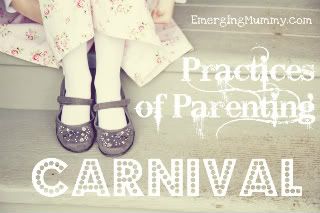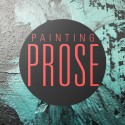I didn’t ask to be a mom. I didn’t have to work too hard to become a mom, either - at least in the biological sense of that word. Our first daughter arrived five days after my 23rd birthday. I was 14,000 miles away from home and had no pre-natal care except the advice of experienced missionaries living nearby and the limited resources of a used gynecological textbook from some nursing curriculum somewhere. Yes, there was a doctor - and a good one - but he was stationed at a hospital 40 miles away, over a very corrugated dirt road; I saw him a total of three times before Lisa was born.
This is what I remember: all of a sudden, I was pregnant - and then, all of a sudden…I was a mother.
There she was, in all her amazing perfection and beauty. I had no parenting guides, no clue where to begin, so I just…began. By the time babies #2 and #3 came along, I was once again living in the land of high-tech hospitals, bookshelves lined with how-to manuals and more people willing to tell me what to do than I could count. But I continued as I had begun: I muddled through.
I made a lot of mistakes. I blew it with dreadfully predictable regularity. I yelled too much, relied on television too much, fed them food with too much sugar too often, dragged them around in cars without seat belts, much less car seats. And somehow, by the grace of a faithful God, they all lived to tell about it. Not only that, but they flourished - my myriad mistakes and all.
Sometimes they hated me - I know this because they told me so, one with alarming frequency. And sometimes, in and around adoring them with every fiber of my being, I hated them, too. That was only when I was exhausted, exasperated, confused or frightened, of course, but between those four emotional coordinates, I’d say that was more often than I’d like to admit. And I don’t REALLY mean I hated them - it was actually more like I hated what happened to me when I was trying my darnedest to be a ‘good mother’ to them and it all fell apart in my face.
When my youngest was a senior in high school, I went back to school - to seminary, actually. And by the time I began working in my profession, all my kids were married and I was a grandmother, on my way to eight grandkids. And guess what? I discovered that all that muddling through I did as a stay-at-home mom? Well, it came in mighty handy when trying to pastor a congregation of 350 highly individual individuals.
“How is that true, Diana?” you might ask. “What possible parallels can there be between parenting and pastoring? “ “Ah,” I would say right back to you, “Let me count the ways!”
1. Authenticity
Now here’s a paradoxical/oxymoronic statement for you to chew on as we begin this counting thing: Even when I haven’t known who I was, I have still managed to be the real me. From the time they were itty-bitty babies, I have talked to my kids like I talk to my friends like I talk to the people I meet almost anywhere. God has been in the process of forming me/shaping me/changing me - sometimes with a great deal of reluctance on my part - for a very long time now. Since I was about 11 years old, in fact, and went forward at a revival meeting in my home church in downtown Los Angeles. I’ve gotten detoured, lost, overwhelmed, discouraged and embarrassed multiple times along the way. But I’ve always been who I was at any moment in history - not any more than I was, but not any less, either. And I’ve always talked about the processing going on as honestly and openly as possible. For as long as I have known them, I have loved to be around my kids, loved to talk to them, to show them what’s going on in the world around them, to invite discovery, to laugh and to cry when things were appropriately wonderful or terrible. And while I did all that, I pretty much let it all hang out - the flaws, the overwhelm, the not knowing. Also, the thirst for knowledge, the eye for detail, the quick sense of humor, the willingness to work hard. What they saw was what they got.
2. Encouragement
I never had the looks or the coordination for the job, but I coulda been a GREAT cheerleader. I believe in encouragement as a force for world peace, reconciliation between warring tribes, the solution to global warming. I cannot think of a single negative thing that comes from encouraging someone else on their journey of life. Not one. I was a huge fan of each of my children - still am, as a matter of fact. They are, without a doubt, the most brilliant, kind, compassionate, creative, loving human persons who have ever graced the planet. Well, other than Jesus himself, of course. And their children are following right along in their parents’ footsteps. I believed in my kids, even when I didn’t know if that was the smartest row to hoe or not. They were not perfect - but then, neither am I, neither is their dad. But those kids came dang close, I’ll tell you. And when they had a down day, I was there to tell them it would look better in the morning. And generally, it did. It really did. Encouragement is the name of the game. And I think the apostle Paul - and yes, Jesus himself - would agree with me on that one.
3. Nurturing
At the risk of sounding like a particularly sappy Hallmark card, this is what’s at the heart of mothering, is it not? Protecting those chicks, even when they’re bigger than you are. Providing a safe haven, a cozy nest. Paying enough attention to know when they need a ‘mental health’ day off from school but not so much attention that they feel suffocated. Packing lunches (or double-checking the cash reserves for the cafeteria); baking birthday cakes (or buying exactly the right kind at the corner bakery); knowing what they like and what they don’t like - for dinner, in their closet, coming out of your mouth; knowing who their friends are, praying for friends if they don’t have any (or if you think they need a little broader selection). Paying attention and being there - pretty much sums it up.
4. Listening
I’ve already mentioned that I spent a lot of time talking to my children when they were young. But I spent a lot, a lot, a LOT of time listening to them as they got bigger. Some of my kids were better talkers than others. The one who is male clammed up at about age 12 and I had to carefully figure out ways to continue the conversation. This is what I discovered: if we were in the car, where we did not have to make eye contact, my son would open up like he used to before the hormones began flooding his lanky frame. (In two years, he grew ten inches and gained about fifty pounds of big bones and solid muscle). Sometimes I didn’t like what I heard, but I kept on listening, trying not to react, cringe, frown or otherwise shut down the flow. Making space for the other person to talk, even if that talk is painful confession or emotional outburst, is really a requirement for any kind of meaningful human relationship, don’t you think?
5. Teaching
This might seem to be the facet of mothering with the most direct carry-over into the pastoral life, and in some ways that is definitely true. But maybe not in exactly the ways you might imagine. From the time my kids were about 18 months old, I invited them to make choices about their lives, starting with the small stuff. What would you like to wear today? I’d ask. And that made for some fascinating fashion statements at times. As they got bigger, I’d gently comment that maybe we could choose pants OR the skirt, or perhaps both of those busy prints might look more restful if they weren’t worn together. But initially, they wore what they wanted, even if people thought I’d pulled their outfits out of a dumpster somewhere. And I applied that principle across the board. The encyclopedia, the dictionary, the daily newspaper, the Bible - all of these became rich resources in my efforts to help them become their own persons, with their own ideas. If I knew something about a topic they were interested in, I talked about it or I showed them how to do it for themselves. They all got reasonably good at doing laundry, cooking a basic meal (although I was never a good cook and they are all far better at it than I ever was), doing basic household chores. They also learned how to read and to write critically and well, how to wrestle through hard ideas and issues and how to take care of one another. You know, the basics - the essential skills needed to live life in a sometimes crazy world.
6. Releasing
This was the hardest part of mothering for me, bar none: letting them go. And I had to begin doing that when my eldest was a lot younger than I wished. She got married when she was 19 and she basically shifted her primary focus to the man she married when she was just a slip of a girl at 16. The Lord and I wrestled hard about all of this for each of those three years and I continued to wrestle with it for a lot of years after she was married and gone. I had never asked to become a mother, but once I was one? It became my primary identity and mission in life. I loved every thing about it, even the hard and ugly stuff. But what I learned during those years of wrestling was this so-important truth: my children were not mine. They were entrusted to my care, they were among the greatest of God’s gifts to me, but they did not belong to me. They were their own unique selves, gifted and shaped not to become mini-me’s but to become Lisa, Joy and Eric. And for that to happen, I had to do a whole lot of work up front and then get my mucky hands off. I had to stand back and watch them move out into the world all on their own. They made mistakes, they fell down - hard, sometimes - but oh my, what magnificent people they are! Each one of them an individual of irreplaceable giftedness, heart and finely crafted personality.
I’m not sure if what I’ve written here exactly fits into the category of ‘practices of parenting.” Nevertheless, I am contributing them to Sarah Styles Bessey’s Blog Carnival of ideas and suggestions. She’s issued a wonderfully warm invitation and many of us are joining the party. Come on over to her place and check them all out. I will also add this one to the new meme forming to help cover the absence of Emily Wierenga for a while. I've done her "Imperfect Prose" for almost a year now and so enjoy the company of that place. But Emily's life is over full just now, so Kim at "Journey to Epiphany" has stepped in with a temporary community gathering space called, "Painting Prose." Thanks, Kim!


